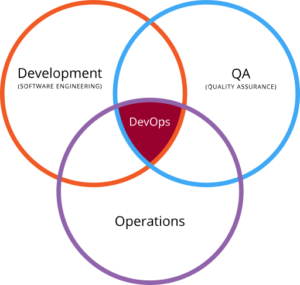Introduction to DevOps
Overview:
What is the secret to the rapid success of software giants like Netflix, Amazon or Google?
How did they succeed in turning information technology from an operational expense to a strategic advantage?
The answer lies in new development and operation methodologies combined with advanced tools and organizational culture focused on innovation. Or in short DevOps.
Working according to the DevOps principles enables technology organizations to introduce changes at a much faster rate and with higher quality.
However, the true meaning of DevOps remains vague. Many professionals have trouble understanding and explaining why this DevOps thing is good. The variety of skills, processes, and tools involved in doing “DevOps” changes every day.
At the course we’ll explain what DevOps is, understand the guiding principles of the methodology and understand what tools and skills you need to enjoy the benefits of the method.
Duration
2 days
Type of Training
Theoretical overview + classroom exercises
Target Audience
- Business managers and decision makers looking to benefit from digital transformation.
- Software development and operation professionals looking for ways to improve the way they deliver software.
Prerequisites
Good understanding of software development lifecycle. Acquaintance with management theory and practice. Basic understanding of Agile Software Development methodology.
Description
Outline:
- DevOps : the IT Revolution
- The birth of Agile operations
- The great divide of devs and ops
- 10 deployments a day at Flickr
- Lean principles and DevOps
- TQM and DevOps
- Agile Project Management
- Evolution of Version control and Release Management
- Centralized vs. Distributed
- Integrated Systems
- Continuous Integration and Delivery
- Continuous Testing
- Continuous Deployment
- Continuous Security
- Continuous Metrics
- A few words about the Cloud
- Advantages
- Challenges
- What is Cloud-Native?
- Models: IAAS, PAAS, SAAS
- Serverless Computing
- Configuration Management Tools / Infrastructure as Code
- Introduction to Microservice Architectures
- Containers and Container Orchestration
- The Organizational Structure
- Implications of Conway’s Law
- Should you have a DevOps team?
- Applying systems analysis to software delivery stream
- Value Stream Mapping
- Understanding Feedback Loops
- Continuous Learning
- Mastering dialogue
- Team learning
- Knowledge sharing systems
- The importance of documentation
- Measuring the flow
- Where to Start




Reviews
There are no reviews yet.